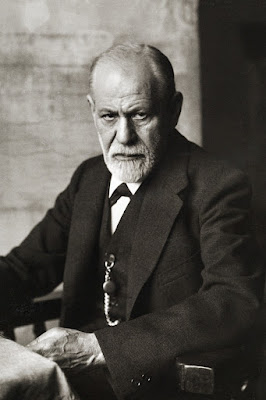Unraveling Unconscious Desires and Emotions
At the core of Freud's work was the exploration of unconscious desires and emotions that drive human behavior. Applying his insights to gambling, Freud would focus on identifying players' hidden motivations and emotional triggers. By recognizing whether a gambler is seeking an adrenaline rush, emotional escape, or a sense of control, Freud could tailor his gambling strategy to align with these underlying psychological needs, making decisions that maximize his chances of success.
Utilizing Dream Analysis for Strategic Decision-Making
Freud's pioneering work in dream analysis involved decoding the symbolic language of dreams to uncover hidden desires and conflicts. Translating this skill into gambling, he might examine his dreams related to gambling experiences, extracting valuable insights into his subconscious beliefs and biases. By integrating dream analysis into his decision-making process, Freud could make more informed bets, tapping into his intuitive understanding of his own psyche.
Applying the Oedipus Complex to Anticipate Opponents' Moves
The Oedipus complex, a cornerstone of Freud's theories, revolves around the subconscious conflicts individuals have with their parents. Transposing this concept to gambling, Freud might analyze his opponents' behavior to identify patterns rooted in their relationships with authority figures. By recognizing how these unresolved conflicts influence their decision-making, Freud could predict their moves and adjust his strategy accordingly, gaining a competitive edge.
Incorporating Defense Mechanisms to Stay Calm Under Pressure
Freud introduced the concept of defense mechanisms, psychological strategies individuals use to cope with anxiety and protect their self-esteem. Applying this to gambling, Freud could develop a repertoire of defense mechanisms to remain composed in high-pressure situations. By utilizing mechanisms like rationalization to justify his bets or sublimation to channel his impulses into strategic moves, he could maintain a clear and focused mindset, even in the face of uncertainty.
Harnessing Transference and Countertransference for Psychological Manipulation
Freud's understanding of transference (projecting feelings onto others) and countertransference (reacting to others based on one's own emotions) could be powerful tools in gambling. By cultivating a keen awareness of his opponents' transference reactions towards him and employing countertransference to evoke specific responses, Freud could manipulate their emotional states. This psychological advantage might enable him to lead opponents into making impulsive decisions that work in his favor.
Conclusion
While Sigmund Freud was not a gambler himself, his intricate knowledge of human psychology could have been harnessed to develop a unique and strategic approach to winning at gambling. By unraveling unconscious desires, utilizing dream analysis, and applying his theories of defense mechanisms and transference, Freud could have created a compelling framework for decision-making in the realm of chance. Imagining Freud as a gambler allows us to appreciate the profound depth of his psychological insights and their potential application in diverse arenas beyond the therapeutic setting.
Photo: Pixabay (free)
